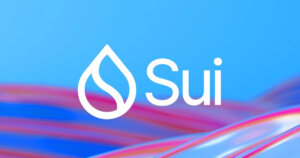 We’re a crypto wallet and we don’t hold any personal data, here’s why
We’re a crypto wallet and we don’t hold any personal data, here’s why We’re a crypto wallet and we don’t hold any personal data, here’s why

Photo by Hoang Nguyen on Unsplash
Over the past decade, there has been an unrelenting movement pulled by a global digital current leading us to migrate our identities and almost our entire lives online.
Modern lives demand a working internet connection; work emails, social media, banking. All of these online movements and all our personal information associated with these movements are completely traceable–collected and stored as data to be monitored and monetized by people we will never meet.
For decades now, legislation surrounding the privacy of personal data has been largely influenced by the interests of corporations, governments, law enforcement agencies, and security services. Data is an extremely valuable tool for companies, a commercially driven commodity that is very often used to manipulate us.
But we can change the inherent value of data, giving back the power to individuals. Every single person should own and have control over their personal information; the right to privacy is a basic human right. Just as we wouldn’t share our driver’s license or passport information with strangers, our digital identities are often tied to a far more intimate and detailed expression of ourselves.
Here are the four reasons why our open-sourced cryptocurrency wallet doesn’t hold personal data, and what it means for our community.
We respect your right to privacy
Privacy matters for many reasons. Among them, privacy limits the control that any organization or government can have over someone. It’s the key to freedom of thought and it establishes boundaries between a person and the rest of society.
Now, for the first time in years, an individual’s right to privacy has been at the center of legislative change. The EU recently brought into effect their new General Data Protection Regulation, the most radical update to data privacy laws in the past 20 years. Companies must now abide by new rules that grant their users the explicit right to request a copy of all their personal data, and even ask for it to be completely erased. Websites must also report any hacks or breaches of their user data, and pay fines when such attacks occur. The GDPR applies to any company or website which has users based in the EU.
The GDPR is both a bold and overdue move; personal data should always be kept private and protected. Every individual’s right to privacy should be honored, no matter how much tech companies claim to make our lives easier by ‘customizing’ our online experience.
As we don’t hold any personal data, we by default do not need to be subject to the GDPR – and we want to keep it this way.
Power should be in the hands of the individual
In light of the recent reports about Cambridge Analytica and Facebook, the fears that many have had about the massive collection of user data have been confirmed. Allegations that the data mining firm, which politically backed Trump during the 2017 election, swayed audiences through illegally obtained data is just one example of its harrowing effects. It is likely these reports are only the tip of the iceberg.
Facebook is free because they store our sensitive data in their centralized databases, which is then sold to companies who use this data to minimize their spending on advertising, carefully targeting their customers based on demographics.
The Googles and Facebooks have effectively monetized our most valuable asset; our identities. It is my belief, and the belief of many other like-minded blockchain technologists, that the control of that asset should belong to the individual.
Identity is a source of wealth that large companies have been able to monetize. One of the promises of open-source, decentralized blockchain philosophy is that it puts your identity back into your own hands. Decentralized platforms mean that user data cannot be collected by ill-meaning companies or be stored on servers. Blockchain will give control of data back to those who should have always owned it – you.
The blockchain, by its trustless structure, safeguards us against the passive distribution and collection of user data, and businesses that subscribe to that structure must stand on a stronger ethical footing.
We’re data-theft proof
A vault that is empty is impervious to theft. If MEW’s servers were hacked, for example, the hackers would find no names, addresses, private keys, or any other identifying data of our users. Users are granted complete anonymity, freedom of privacy, and can navigate our platform without fear of being identified or tracked. We don’t believe in centralizing or keeping backend servers. With any popular platform, it’s not a matter of if they get hacked, but when.
A Bloomberg report last year revealed that in late 2016 Uber was hacked, exposing the names, email addresses and phone numbers of 50 million users around the world, including over half a million driver’s license numbers. However, it’s not just these online giants who place our identities at risk. Passive data collection is so entrenched in the age of e-commerce, to a point where countless lesser known or established companies are storing our highly sensitive private data, leading to extremely damaging consequences when attacked. Carefully targeted hacks of these websites can reveal personal finances, health records, and even political and religious affiliations.
Genetic analysis company MyHeritage had more than 92 million of its users’ login data compromised late last year. While the company claims that all DNA information is stored on separate, ‘segregated systems’, all of this raw genetic information is still held on centralized servers. This is simply not good enough. Privacy protections should be paramount, and these companies should be far more proficient guardians of our data – our DNA is literally the fabric of our identities.
Just a few weeks ago, the UK Information Commissioner’s Office released a statement that they had fined the British and Foreign Bible Society £100,000 after hackers acquired the personal details of 417,000 of its supporters, stored on an “insufficiently secured internal network”, exposing them to possible identity fraud. Head of enforcement of the ICO, Steve Eckersley, said that the “distress this kind of breach can cause cannot be underestimated”, as the religious beliefs of those supporters could now easily be deduced.
These very common breaches make individuals vulnerable in a number of ways, in virtually all aspects of daily life. All of this private data – the information which ties your identity together – can be easily collected, sold and monetized by companies, and yet so easily exposed. We must demand more of these companies, of our data protection laws, so that who we are as individuals doesn’t become a mere statistic in a database, but valued and recognized.
Blockchain as an inbuilt trust system
Our crypto wallet is built around blockchain technology, inspired by and in service of the community that has arisen around it. We are strongly against privatizing people’s information, and the trustless, transparent and decentralized nature of blockchain is something we wish to preserve.
MEW is a trusted, global brand specifically because the user does not need to trust us. We are an open-source platform, meaning our code is 100 percent transparent. Anyone can hold us accountable, and we will always remain one of the countless custodians of open source platforms.
Ultimately, users of any platform or website can be protected and empowered with full anonymity using blockchain. While decentralization offers us a chance to be invisible, it also means that we are also solely responsible for our security. This may be confronting to many, as we have all relied so heavily on the platforms and companies, like banks, to safely store our private information.
With traditional centralized platforms, if we forget our passwords or send money to the wrong person, this can often be rectified. If you make a mistake in the blockchain world, such as losing your Private Key or making a typo in a wallet address when sending funds, it’s practically impossible to fix. This is the price of true economic freedom – we are all in total control of our financial, social and digital lives.
The internet itself should belong to every person who uses it, and individuals should not have to rely on established authorities to reap the benefits of this technology. Decentralization means that we can all own and navigate the online world without any corporation, government body or third party having access to any information about us. Blockchain’s inherently democratic, secure and self-sovereign characteristics honor our rights as individuals to owning our data – to owning our identities. And that’s how it should be.



 Farside Investors
Farside Investors 


 CoinGlass
CoinGlass 
























































































